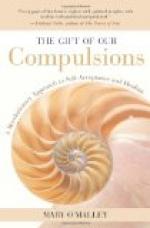Eld. B. What are the results of attendance on the Sabbath school?
Teach. That question we answer, partly in faith, and partly by knowledge. Faith is good;—and we know that our school is a good school; we know that we enjoy ourselves there; and we know what is learned there is good. It is there that divine influences and joyful communions fill with gladness the hour. We enjoy them, and if we could say no more, we think that this would be sufficient.
Eld. B. That is true.
Teach. But that is not all; the results go still further. They are not confined to the hour passed in the schoolroom. The scholar is better and happier for having been there. Is it not so with you?
Eld. B. Yes sir; I always feel better when I have been to the school. When I have said my lesson, conversed upon the subject of it, and obtained my library book, I am always glad to have been there.
Teach. Your answer is full of hope and promise; for if you now find your enjoyment in learning the things of the Kingdom of God, those evil days will never come to you, when you will say you have no pleasure in them. The Sabbath school scholar who is prompt in his duty is in a safe path,—one which, while affording happiness by the way, results in the fulness of joy. To him the example of Christ is an example of love and goodness, drawing him to the Father by these divine influences and attractions. “He sees God, not only as the Creator, but as he is manifested in the world, by his providence, which shows us that he not only made the world, but that he makes the world; that he is the same in the creation of the flowers and streams as in the creation of storms and tempests; that he is not far off, but near, ever blessing us with the favors of his parental providence; that his power is over everything; that motion is his power, for there can be no motion without mind; that God is present in the child. It cannot live by bread alone. Communion must be held with God—spirit with spirit.”




